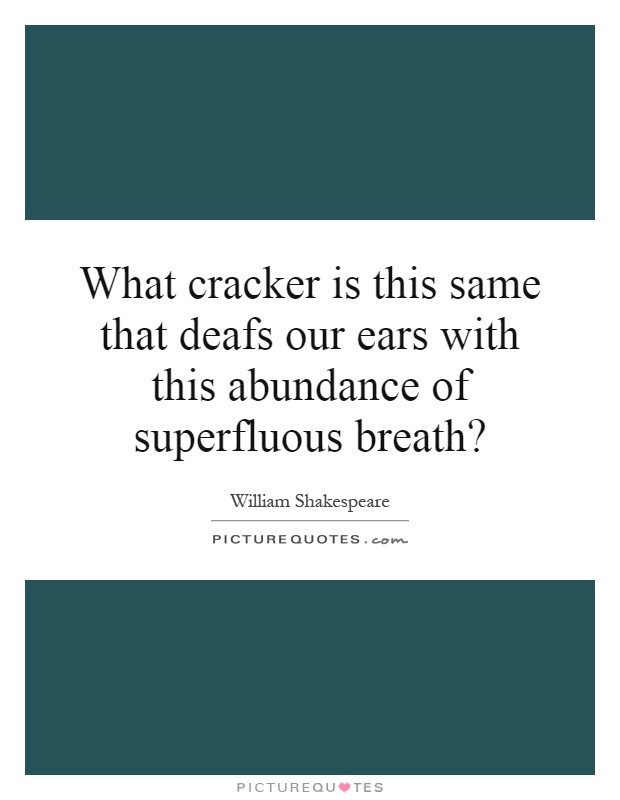What cracker is this same that deafs our ears with this abundance of superfluous breath?

What cracker is this same that deafs our ears with this abundance of superfluous breath?
The line "What cracker is this same that deafs our ears with this abundance of superfluous breath?" is from William Shakespeare's play "King John". In this particular scene, the character of Philip the Bastard is expressing his frustration with the empty words and false promises of politicians and leaders. The term "cracker" in this context refers to someone who talks excessively or loudly, but without substance or meaning.Shakespeare was a master at using language to convey complex emotions and ideas, and this line is a perfect example of his skill in capturing the essence of a character's frustration and disillusionment. Philip the Bastard is tired of hearing empty rhetoric and meaningless speeches that do nothing to address the real issues at hand. He is calling out the hypocrisy and deceit of those in power who use words to manipulate and deceive rather than to communicate honestly and effectively.
The phrase "deafs our ears" is a powerful image that conveys the overwhelming nature of the meaningless words that Philip is forced to listen to. It suggests that the constant stream of empty promises and false assurances has become so loud and pervasive that it is drowning out any possibility of real communication or understanding.
The use of the word "superfluous" further emphasizes the idea that the words being spoken are unnecessary and excessive. They serve no real purpose other than to deceive and manipulate, and Philip is fed up with being bombarded by this meaningless chatter.
Overall, this line from "King John" is a poignant reminder of the power of language to both enlighten and deceive. Shakespeare's ability to capture the complexities of human emotion and experience in his writing continues to resonate with audiences today, making his work timeless and relevant across the centuries.












 Friendship Quotes
Friendship Quotes Love Quotes
Love Quotes Life Quotes
Life Quotes Funny Quotes
Funny Quotes Motivational Quotes
Motivational Quotes Inspirational Quotes
Inspirational Quotes